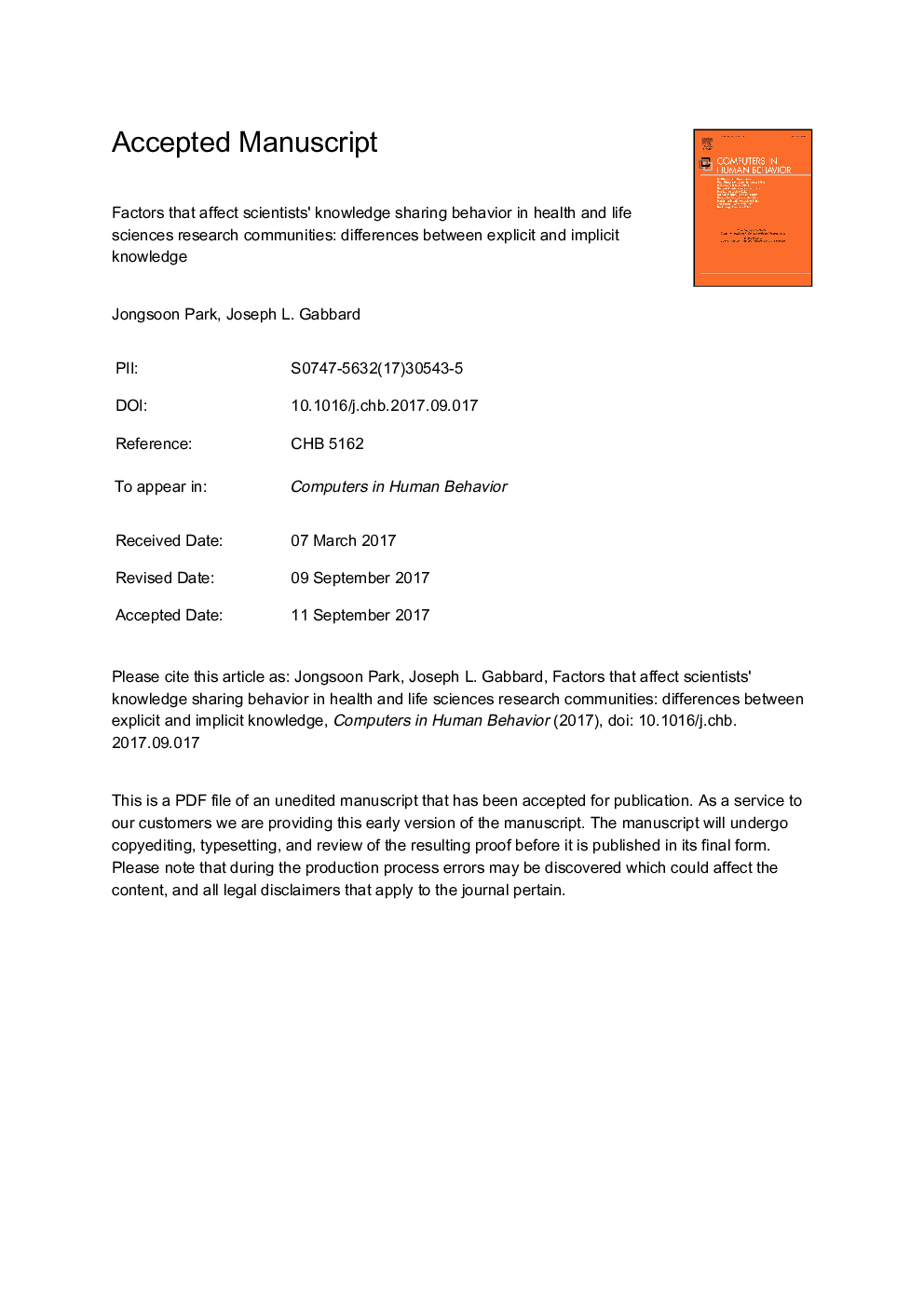| Article ID | Journal | Published Year | Pages | File Type |
|---|---|---|---|---|
| 6836365 | Computers in Human Behavior | 2018 | 35 Pages |
Abstract
In the past decade, the number of knowledge networking platforms has been rapidly increasing, in part to support data intensive and cross-disciplinary research in growing fields such as health and life sciences. To promote knowledge sharing, it is important to understand why scientists want to or hesitate to share knowledge with other research communities. We examined five determining factors (reciprocal benefit, anticipated relationship, reputation, altruism and fear of being scooped) that impact scientists' intention to share explicit and implicit knowledge and built a predictive research model. The proposed model was then evaluated using partial least squares (PLSs) method against 141 valid survey responses. The results suggested that reciprocal benefit and fear of being scooped were significant in affecting implicit and explicit knowledge sharing behavior in health and life sciences research communities. Reputation had a main effect on scientists' intention to share explicit knowledge and anticipated relationship had an effect on scientists' intention to share implicit knowledge. However, altruism showed no main effects on knowledge sharing. We concluded by discussing strategies, derived from analyzing our survey data, to assist user experience practitioners in designing and promoting knowledge networking support in complex scientific domains.
Keywords
Related Topics
Physical Sciences and Engineering
Computer Science
Computer Science Applications
Authors
Jongsoon Park, Joseph L. Gabbard,
